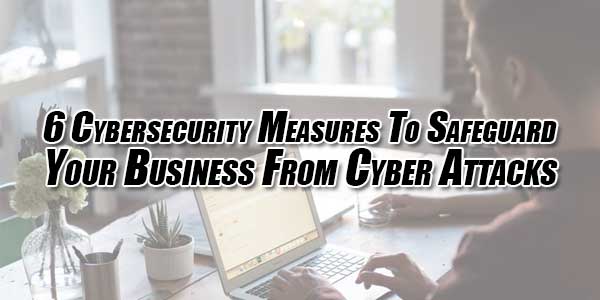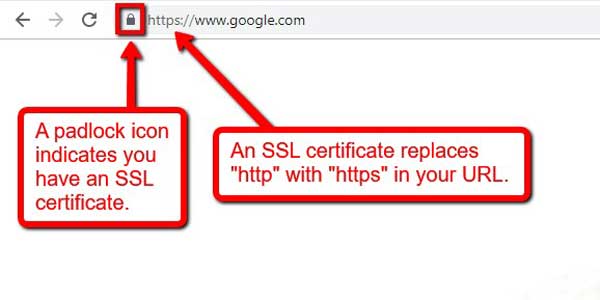
The internet has opened the doors for business owners to improve and optimize how they run their business. The ability to email, transact, work remotely, store information, and run a website safely is imperative to a business’ daily operations, growth, and success.
But along with this reality is a high degree of risk as well. Every day, hiding behind screens are cybercriminals relentlessly prowling on unknowing websites to steal money or valuable information and interrupt business operations.
Because of that, businesses have to take all necessary cybersecurity measures to safeguard themselves. If you want to do that for your business, here are six measures you can implement.
Table of Contents
1.) Run Risk Assessment Audits And A Network Defenses Check:
Once you’ve established cybersecurity protocols through your users and employees, you will then have to check the strength of your networks’ defense systems.
You have to round up your IT team to examine different aspects of your network’s infrastructure from its operating systems, to the hardware, and patches for possible areas of vulnerability.
It’s also crucial for you to run tests and risk assessment audits, such as penetration testing, to check for gaps in all layers of your network’s cybersecurity defenses.
As soon as you get the results of the penetration test, you need to implement the recommended action steps to fortify your website security.
Doing so can help prevent your site from falling prey to cybercriminals.
2.) Establish Cybersecurity Protocols And Training:
Establishing strong cybersecurity policies and protocols, coupled with training for the staff, is one potent measure, but you should ensure that you implement them consistently.
The protocols should cover all cyber aspects of the business. You should then communicate these to all employees.
You can best keep your staff informed of your cybersecurity protocols by writing a formal policy with specific and clear guidelines.
Examples may include the following:
- Allowing only official devices to connect to the company Wi-Fi
- Prohibiting opening of personal emails and social media accounts on business-owned computers
- Passwords should conform to specific formats
- Consulting higher authority to validate questionable emails and senders
To further strengthen your policy implementation, you should also conduct cybersecurity training for employees.
Study shows that accidental exposure by the staff is a usual perpetrator for insider cyber threats, with phishing attacks as the highest vulnerability at 67 percent.
Phishing attempts deceive employees into giving sensitive personal or business information by pretending to be trusted or legitimate contacts.
Messages with phishing intents often carry with them malware or links to malicious websites that can compromise cybersecurity.
If you train employees on how to detect and prevent cyber threats within their domain of responsibility, you can have better chances of keeping your business safe online.
3.) Encrypt Your Data And Connections With SSL:
Whatever data you may hold in your databases and systems, if they are valuable to you, they are most likely useful to cybercriminals as well.
These data can be company information like bank routing and credit card account numbers, or personal employee information such as social security number.
As such, it is a pressing need for you to encrypt all data before you save them in your servers or upload them in the cloud storage.
Encryption is the process where you use software to create a different group of passwords to protect your data.
For a user to access specific files, he should have with him another password so he can open them.
While there is encryption software available, one measure you can also implement is to encrypt your connection through a secure sockets layer (SSL).
You must apply for a certificate for your website to allow you to encrypt the connection between a browser and your server.
When you have an SSL certificate, your website URL shall then use HTTPS in place of HTTP. It will also have a padlock icon just before the URL, like this:
Through an SSL encryption, you can safely transmit confidential information such as credit card numbers, passwords, and payments.
An SSL encryption is immensely crucial for businesses like buy/shop online pickup in store (BOPIS) schemes and even cryptocurrency sites that involve financial transactions.
When you have established it, hackers will take much extra effort to obtain those data.

4.) Lock Your Networks:
If your business uses Wi-Fi, you need to ensure raising it to the WPA2 standard, which has longer and unique encryption key as compared to the WPA, making the network safer and more difficult for hackers to break into.
It’s also imperative to put in place stronger and unique Wi-Fi passwords that hackers will find impossible to crack.
The most robust passwords have 10 to 13 characters of multiple kinds, such as special symbols and numbers, and letter cases. An example would be tH3*N3w^Off1ce%.
Bonus tip: If you are connecting to public networks, one way of ensuring a secure connection is to install and use reliable Virtual Private Networks (VPN).
By using a VPN, you can send and receive data across public or shared networks as if your device was directly connected to a private network, allowing for a safer internet experience.
5.) Partner With The Right Platforms:
Does your business have a web application firewall (WAF) in place that will secure your site?
Does your eCommerce platform comply with PCI-DSS Level 1?
If you can answer “yes” to these questions, you have made one significant step to safeguard your business.
These mechanisms will help protect you from virtual breaches in info security across the whole payment network and not just one card.
Furthermore, your hosting service provider should have staff regularly patching cybersecurity vulnerabilities to prevent criminals from attacking your business website.
6.) Install Anti-Malware Defense:
Malware is the umbrella word for various malicious software that can infect and harm computers, such as spyware, ransomware, Trojans, adware, and viruses.
Although they can spread via Wi-Fi, malware can also crawl in spam emails, phishing, and infected websites.
However, if you install anti-malware on your business computers, you set in place an additional layer of defense, should your staff accidentally download or click something suspicious.
It’s also good if you install anti-virus software along with the anti-malware. These two defenses often complement the functions of one another to secure your networks further.
Be sure to update these two defenses frequently so you can guard your computers against any new malware and viruses that may emerge in the web.
Implement These Measures:
The digital era has provided users plenty of not only advantages but also risks. Cybercrimes have risen, with businesses as a significant target.
The measures mentioned above have been proven and tested to safeguard companies from such threats and allow them to operate safely.
Be sure, then, to implement them in your business. What other measures would you add to the list? Write your thoughts below and remember to share this with others, too.














Be the first to write a comment.